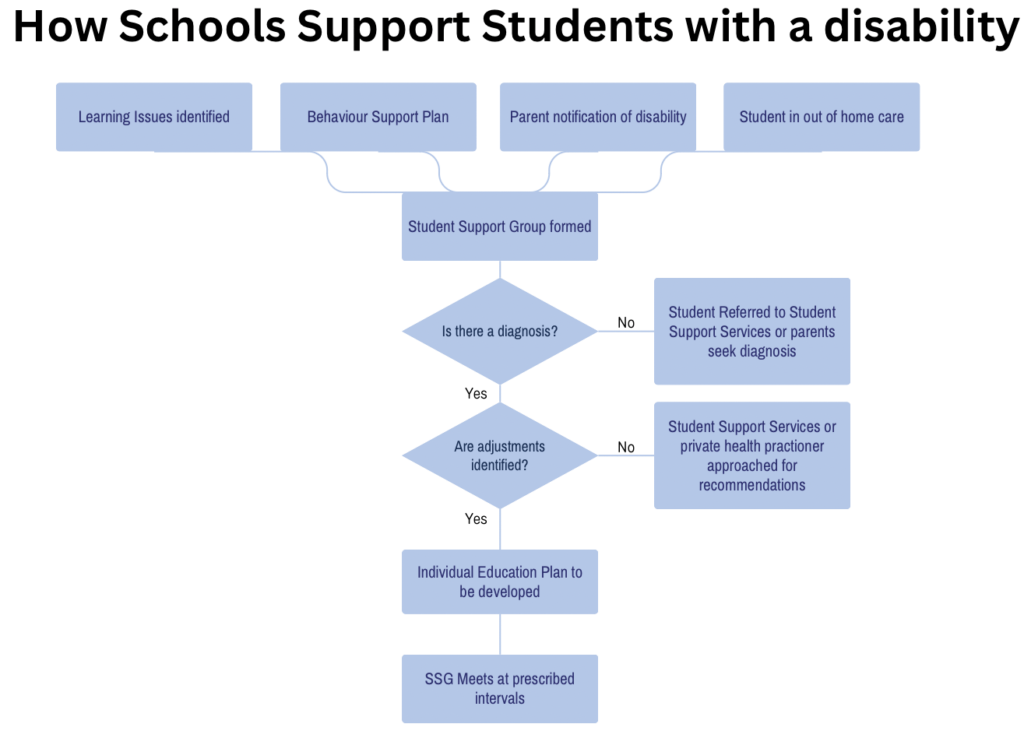How schools should support children with a disability
Early intervention is critical to the success of a child’s development. Schools are legally required to support children with a disability and provide reasonable adjustments to accomodate their learning needs. The earlier that families and schools work together to support a child’s social, emotional and academic growth, the more successful the child’s educational outcomes will be1.
The below image demonstrates the relationship between intervention complexity and outcomes and the potential consequences of a delayed diagnosis or intervention. Children who receive a diagnosis and intervention in early childhood, are more likely to have less complex interventions and greater economic, career and social prospects. If a diagnosis is not made until a child is in their late teens or even adulthood, they are more likely to suffer lifelong consequences of this.

In Australia, children with a disability have the same right to an education2 as everyone else and the education system must support these children. Unfortunately, the education system, particularly the public health system, is grossly under funded to support these children. However despite these challenges, as parents this is not our problem.
Irrespective of the state or territory you live in, or whether your child attends a private or public school, schools must convene a student support group or equivalent to ensure that the child’s needs are identified and adjustments are accomodated. Every child with a disability must have an individual education plan or equivalent.

Whilst it is difficult to access, the public health system does have facilities such as student support services where the school can apply to seek further intervention from allied health professionals.